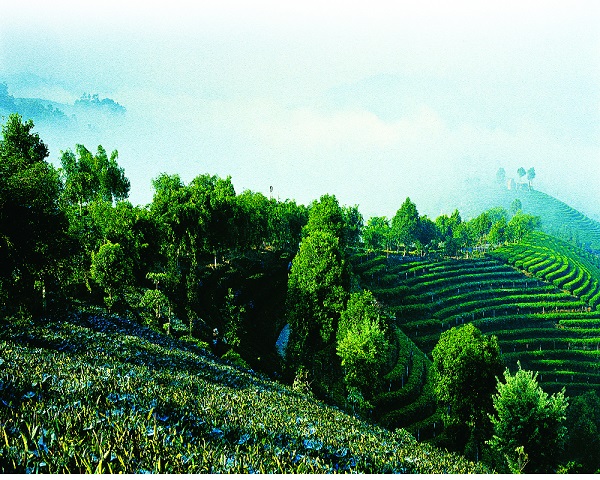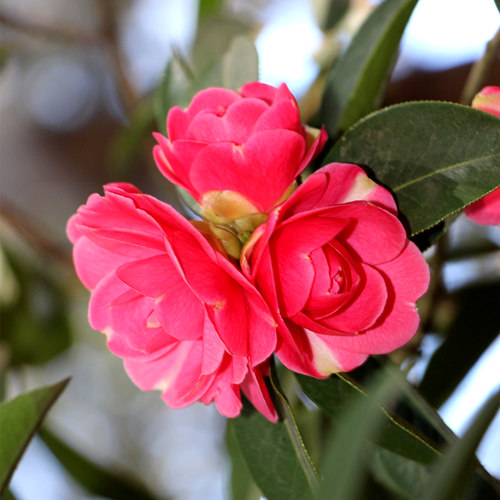
Detailed Introduction to Jingdong County of Pu'er
Jingdong County (景东县) is located in the central part of Pu'er City, in Yunnan Province, China. Known for its mountainous terrain, rich cultural heritage, and significant agricultural production, Jingdong County is a place where the natural beauty of Yunnan’s landscapes and the vibrant traditions of its ethnic minorities come together. This detailed introduction explores the geography, history, economy, culture, attractions, and development of Jingdong County.
Geographical Location
Jingdong County is situated in the central part of Pu'er City, covering an area of approximately 2,777 square kilometers. It is bordered by several other important counties within Pu'er, including Mojiang to the east and Simao District to the south.
The county lies at an elevation ranging from 800 meters to 2,200 meters above sea level, with a landscape characterized by steep mountains, deep valleys, and numerous rivers. The Nanpan River flows through the county, providing essential water resources for agriculture and daily life.
The region has a subtropical climate, with warm and humid conditions year-round, making it an ideal location for tea cultivation, agriculture, and forestry. Jingdong's position in the Yunnan-Guizhou Plateau gives it a diverse and picturesque natural environment, including lush forests and well-preserved ecological habitats.
History
Jingdong has a rich history marked by the presence of multiple ethnic groups, particularly the Yi people, who are the county’s main ethnic group. The area has been inhabited by the Yi, Hani, and other indigenous peoples for centuries, and their cultural practices, traditions, and agricultural knowledge have shaped the development of the region.
Historically, Jingdong was part of the Tea Horse Road, an ancient trade route that connected China to Tibet, Southeast Asia, and beyond. Tea, horses, and other goods were traded along this route, making the region an important cultural and economic crossroads.
In modern times, Jingdong has been part of the administrative division of Pu'er City, and it gained the status of an ethnic autonomous county for the Yi people. This has helped preserve the unique cultural practices of the Yi people while allowing for modernization and development.
Economy
The economy of Jingdong County is primarily based on agriculture, with a strong focus on tea cultivation, tobacco farming, and livestock production. The county's fertile soil, favorable climate, and abundant natural resources have made it an important agricultural hub in Pu'er.
1. Tea Industry
Jingdong County is famous for its Pu'er tea, one of the most well-known tea varieties in China. The county’s tea production has a long history, with Jingdong tea regarded as a high-quality product in the region. Tea is grown on the mountain slopes, often at higher elevations, where the combination of climate and altitude creates ideal conditions for producing raw Pu'er tea and fermented tea.
Jingdong is home to many traditional tea plantations that continue to use ancient methods of tea processing, such as hand-picking and natural fermentation, giving the tea a distinctive flavor and aroma. The county has invested in improving its tea processing techniques and expanding the market for both domestic and international consumers.
2. Tobacco Farming
In addition to tea, tobacco is another important crop in Jingdong County. The region is known for its high-quality tobacco leaves, which are a key component of Pu'er’s tobacco industry. Farmers grow flue-cured tobacco and other varieties of tobacco, contributing to the economy of both the county and Pu'er City as a whole.
3. Agriculture and Crop Diversification
Jingdong is known for its agricultural diversity. In addition to tea and tobacco, the county grows a wide variety of crops, including rice, maize, potatoes, and vegetables. Fruit cultivation, including oranges, lemons, and apples, is also common in the area. The local government has promoted sustainable farming practices, with a growing emphasis on organic agriculture and the development of ecological agriculture to support environmental preservation.
4. Livestock Farming
Livestock farming, particularly the raising of pigs, goats, and cattle, is another important part of Jingdong's economy. Animal husbandry provides additional income for many families in the county, particularly in rural areas. The livestock industry is closely linked with agricultural production, as many farmers grow feed crops to support their animals.
Ethnic and Cultural Heritage
Jingdong is home to a diverse range of ethnic groups, with the Yi people being the largest and most prominent group. Other ethnic minorities, including the Hani, Lahu, and Miao, also reside in



